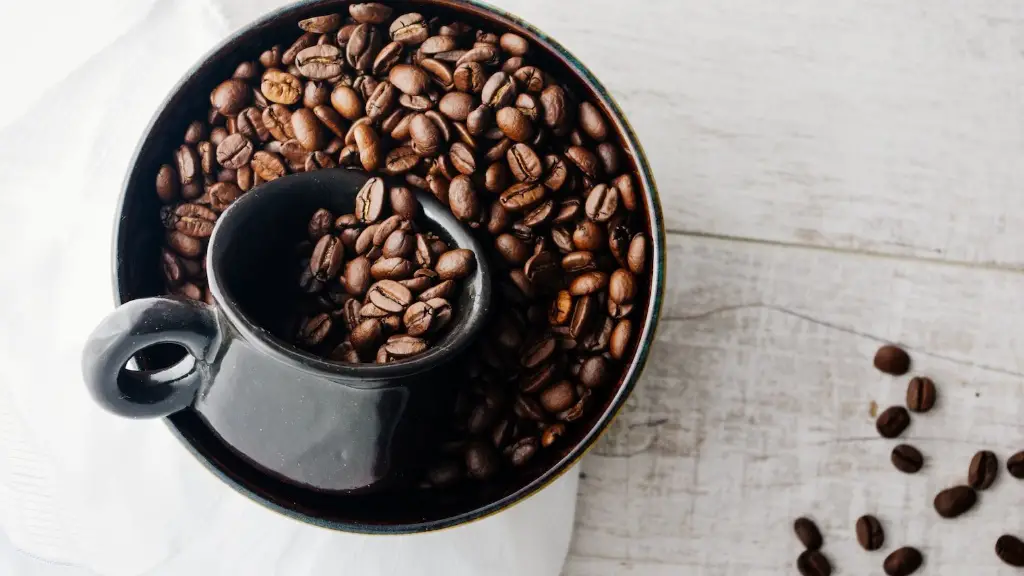Introduction
It’s no secret that coffee is a popular beverage among adults. From Starbucks to Caffé Nero, coffee shops are everywhere. But what happens if a kid drinks coffee? While giving children coffee is generally discouraged, it can be hard to know the implications and consequences of giving a child caffeine. In this article, we’ll delve into the potential side-effects of a kid drinking coffee, from the physiological to the psychological impacts. We’ll also provide information from experts and discuss the potential benefits and drawbacks of caffeine for children.
Physiological Effects
The physiological effects of a kid drinking coffee are largely composed of what occurs due to the caffeine present in the beverage. Caffeine can have a wide range of physiological effects. In general, the intake of caffeine can cause heart palpitations, insomnia, and headaches in children. In more extreme cases, there has been some evidence of caffeine triggering asthma attacks and inducing anxiety-like symptoms in children.
One particularly concerning issue is the effects that caffeine can have on children’s physical growth. Although research is still in its early stages, it has been suggested in some studies that excessive consumption of coffee can slow a child’s growth. An article published in the journal Pediatrics suggests that coffee consumption may be linked to stunted growth in children.
Psychological Effects
In addition to physical effects, coffee consumption by children may also have psychological implications. The largest issue is that caffeine may lead to increased amounts of stress, anxiety, and irritability in children. This can manifest itself in a number of ways, from decreased concentration and performance in school to more aggressive behavior.
Another psychological effect of caffeine consumption is that it may lead to increased impulsiveness in children. This can make it more difficult for them to make sound decisions, and can make them more likely to engage in behaviours that could be detrimental to their health. A study conducted by the University of California San Diego found that caffeine can significantly increase impulsiveness in adolescents.
Recommendations from Experts
Most experts agree that caffeine should be avoided in children, particularly younger kids. According to the American Academy of Pediatrics, the recommendation is that children should not consume any caffeine until they are at least 12 years old.
There is conflicting information regarding the amount of caffeine that is considered safe for children. While the American Academy of Pediatrics recommends that children avoid caffeine entirely, other organizations such as the World Health Organization have suggested that children can safely consume up to 2 milligrams of caffeine per kilogram of body weight per day.
Potential Benefits and Drawbacks
Despite the warnings from experts, there are some potential benefits of caffeine consumption in children. Caffeine can help increase alertness and concentration, which can be beneficial for academic performance. Additionally, caffeine has been linked to improved physical performance in children, as it can help to increase energy levels and reduce fatigue.
On the other hand, it is important to consider the potential drawbacks of caffeine for children. Firstly, caffeine can be highly addictive, and this can lead to a dependence that can be difficult to break. Additionally, caffeine can decrease the amount of nutrients absorbed from other food sources, and can interfere with a child’s natural sleep cycle.
Finally, it should be noted that the potential effects of caffeine consumption for children can vary widely depending on the individual. Some may be more sensitive to the effects of caffeine than others, and as such it is important to monitor consumption and look out for any adverse reactions.
Caffeine Consumption Alternatives
When considering options for kids to consume instead of coffee, it is important to remember that it is not only caffeine that can be harmful to children. Many energy drinks contain high levels of sugar, and other artificial sweeteners, which can lead to increases in blood sugar levels and cause dental problems. Similarly, some sodas can contain large amounts of sugar and other chemicals.
A better option for consumers may be a decaffeinated herbal tea. Herbal teas are widely available in many different flavors and can be a more nutritious and healthier alternative to coffee. Additionally, many herbal teas have added benefits such as antioxidants, and can be a flavorful alternative to sugary drinks.
Caffeine-Free Beverages
In addition to herbal teas, there are a number of beverages available that either contain very little or no caffeine at all. Fruit juices and smoothies can be a convenient way to get many of the essential vitamins and minerals needed in a child’s diet. Alternatively, milk is another great option that is free from caffeine and can provide many important nutrients for proper growth and development.
It is also important to note that there are some beverages that contain very low levels of caffeine. For instance, matcha tea is made from freshly ground green tea leaves and can contain less than half the amount of caffeine found in coffee. Additionally, cocoa-based drinks such as hot chocolate can also provide a caffeine-free beverage alternative.
Healthy Habits
Finally, it is important for parents to teach children about the importance of healthy habits when it comes to caffeine consumption. Teaching kids to limit the amount of caffeine they consume, and avoiding caffeine entirely in those under 12 years of age, will help to reduce the potential negative impacts on physical and mental health. Additionally, making sure children are getting enough exercise, eating a balanced diet and drinking plenty of water can help to ensure they remain healthy and energized.
Ultimately, the decision of whether or not to give children coffee is one that should be made with careful consideration. While there may be potential benefits to caffeine consumption, the potential side-effects and risks that can arise should always be taken into account. By following the advice of experts and making sure that children are given healthy and nutritious alternatives, it is possible to ensure that the potential impacts of caffeine are kept to a minimum.


